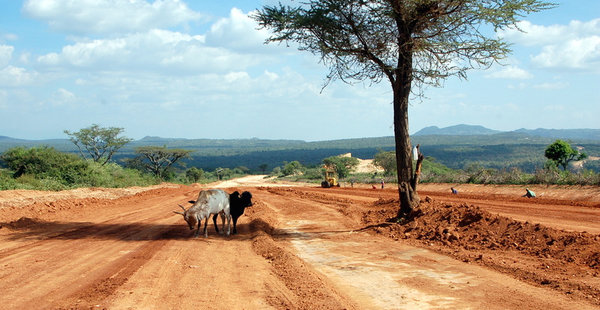
Lands of the Future
For the lates news and information please visit the new LANDS OF THE FUTURE website here.
Workshops and Panels | Publications | Related Projects and Institutions
During a workshop called Lands of the Future at the Max Planck Institute for Social Anthropology in Halle/Saale, Germany on March 4–5, 2013, prominent anthropologists were invited to discuss the future of pastoralism in Africa. This workshop resulted in the creation of the Lands of the Future Initiative (LOF), which addresses some of the pressing issues and concerns related to the adaptation and transformation of pastoral peoples to large-scale land acquisitions and other forms of investment in pastoral and agro-pastoral areas of eastern Africa.
The Lands of the Future Initiative – open to scholars and practitioners from all disciplines – aims to raise levels of pertinent knowledge about pastoralism and agro-pastoralism within changing economies and contends that pastoralists are central actors in development processes.
The Lands of the Future Initiative provides a basis for informed discussion, comparative research and exchange in cooperation with its associates, related projects and research programmes at partner institutions.
Pastoralists throughout the world are facing times of turbulent transition with global economic trends increasingly becoming investment reality in pastoralists’ territories. Changing land use patterns and disturbances to the environment and livelihoods of pastoralists are obvious in eastern Africa, which is home to one of the largest concentrations of pastoralists in the world. (Agro-) pastoral communities, who engage in subsistence economies, are and will continue to be significantly affected by large-scale domestic and foreign commercial investments, by resettlement schemes and by the changes in land use within their territories. Governments, politicians, and local communities, NGOs and human rights organisations, activists, and investors as well as scholars from different disciplines represent divergent voices concerning the implications of investments within pastoral territories. Often these voices seem irreconcilable. The Lands of the Future Initiative searches for solutions where conflicts of interest occur, above all, to prevent serious conflict scenarios that arise when divergent interests harden into opposing fronts.
Although biased perceptions of the ‘unproductive’ uses of pastoralism have become outdated, government policies still do little to formally recognise or integrate pastoral lands as critical parts of rural livelihood systems and economic development models. Instead, many states give preference to large-scale agricultural investments, resulting in the loss or fragmentation of rangelands, induced sedentarisation of pastoralists, and a radical reduction in livestock numbers. The Lands of the Future Initiative supports the view that alienation of pastoralists from productive lands often is unwarranted, unproductive, and unadvisable and that local communities, local level authorities, and traditional knowledge should be seriously integrated and consulted when developing environmentally sound approaches to managing natural resources. The potential of flexible and resilient agro-pastoralist land use systems expecially in times of climate change cannot be underestimated.



